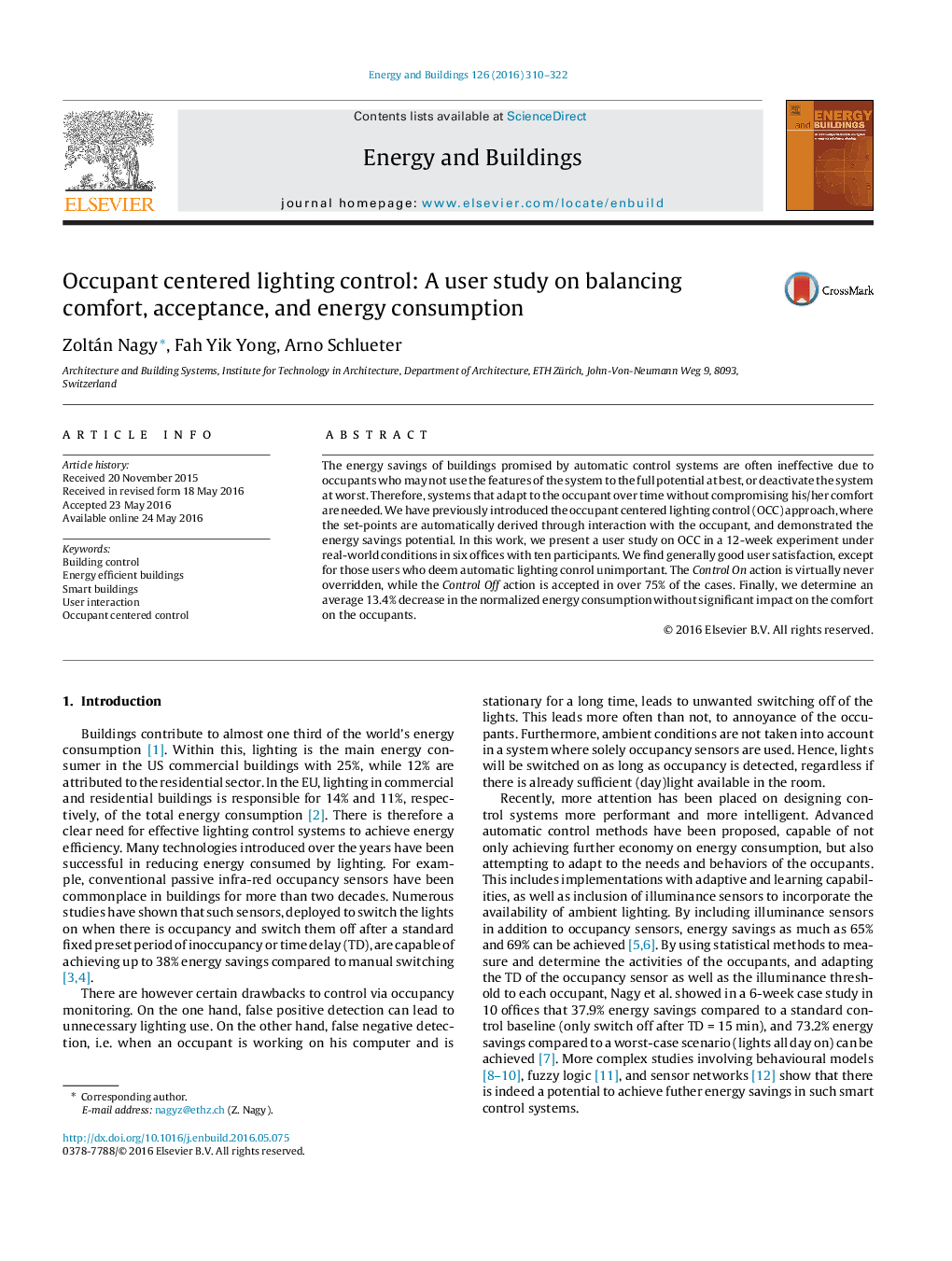| Article ID | Journal | Published Year | Pages | File Type |
|---|---|---|---|---|
| 261936 | Energy and Buildings | 2016 | 13 Pages |
The energy savings of buildings promised by automatic control systems are often ineffective due to occupants who may not use the features of the system to the full potential at best, or deactivate the system at worst. Therefore, systems that adapt to the occupant over time without compromising his/her comfort are needed. We have previously introduced the occupant centered lighting control (OCC) approach, where the set-points are automatically derived through interaction with the occupant, and demonstrated the energy savings potential. In this work, we present a user study on OCC in a 12-week experiment under real-world conditions in six offices with ten participants. We find generally good user satisfaction, except for those users who deem automatic lighting conrol unimportant. The Control On action is virtually never overridden, while the Control Off action is accepted in over 75% of the cases. Finally, we determine an average 13.4% decrease in the normalized energy consumption without significant impact on the comfort on the occupants.
